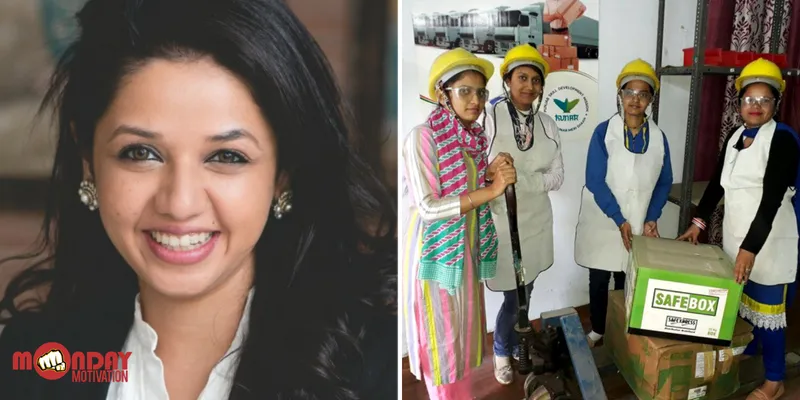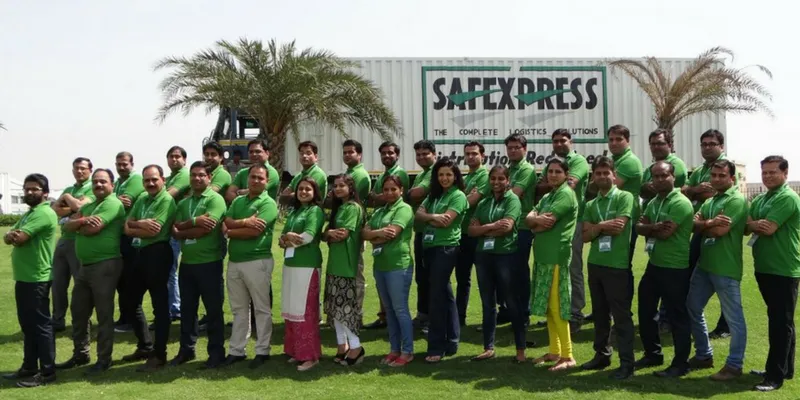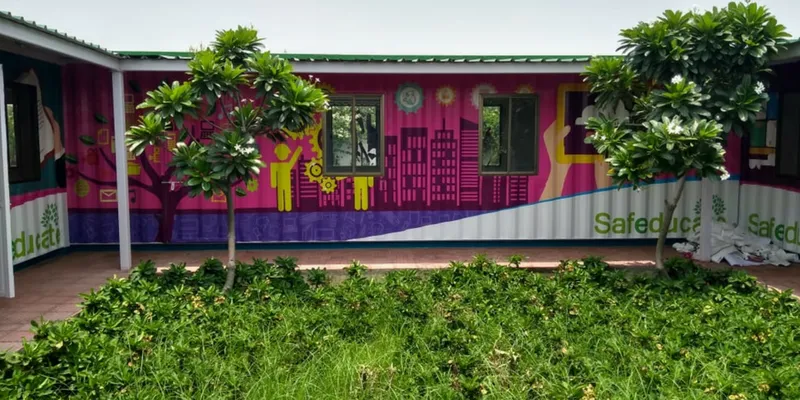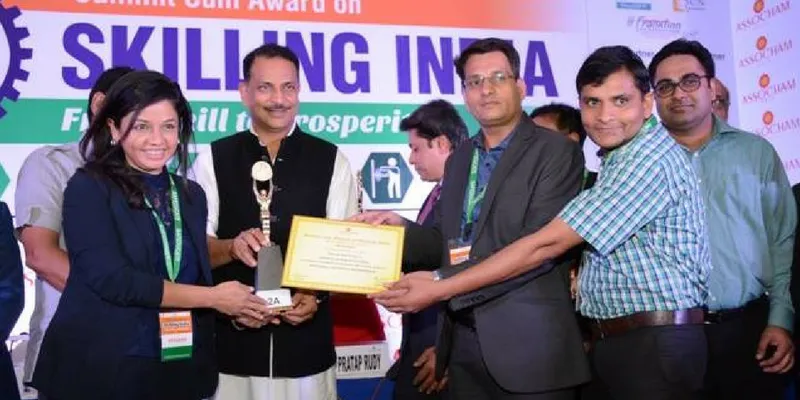From a book on truck drivers to schools made of containers, Divya Jain is transforming the logistics industry
Safeducate works to develop a talent pool of proficient supply chain and logistics professionals in an eco-friendly manner.

In 2007, Divya Jain was head of the training division of Safexpress, a logistics and supply chain firm run by her father-in-law, Pawan Jain, and husband, Rubal.
There, to address a lack of skills and expertise in the industry and to attract more talent, in 2013, Divya set up Safeducate to meet the demand gap for skilled workforce in India.
“Safeducate is for profit, but not only for profit,” explains Divya. “It’s innovation that drives us. It is for people who are looking to learn.” It has 150 centres across India that have trained 50,000 individuals. We want to reach 1,50,000 this year,” she says.
The training programmes
“It is tough to be taken seriously as a woman,” she remembers. “At first, everyone would ask me – Can I meet your father-in-law? Can I meet your husband? – It takes the first few years to establish oneself, and for people to start coming to me for solutions.”
Divya’s aim is to train a million people over the next ten years through Safeducate’s centres. She believes gainful employment should be a right and not remain a dream.

Safeducate’s government-sponsored skill development programmes runs in Rajasthan, Bihar, Assam, Maharashtra, and other states. For student-sponsored programmes, the organisation has set up learning hubs in cities like Indore, Agra, Delhi, Kochi, and Jaipur. The programmes offer various courses conducted by trainers and consultants on domain knowledge and practical training, enabling trainees to face day-to-day challenges of working in the supply chain and logistics industry. All training centres are equipped with practical laboratories and state-of-the-art facilities.
Apart from regular walk-ins, Safeducate also conducts community mobilisation drives to reach out to local youth.
Trained counsellors of the organisation visit households, and with the help of Panchayat and local authorities, inspire youth between the ages of 18 and 35 to learn skills required for jobs in the supply chain and logistics industry.
It has a fully functional placement cell that offers placement assistance and career guidance to all trainees. Leading companies like TCI, Big Bazaar, Flipkart, Jabong, KFC, Metro and many others have offered jobs to Safeducate students.
The container schools
“I am in an industry that does not exist,” Divya says. “Vocational skilling is a nascent industry. Social acceptance is a challenge.”

The challenge, however, did not bow her down. Instead, she collected discarded containers and made schools out of them as part of her go-green initiative! Since containers have a high shipping cost, millions of them are simply thrown away. This led Divya to centrally fabricate schools out of these containers and send them to Binola (Haryana), Chhapra (Bihar), Ambala (Haryana), and Amritsar (Punjab).
Until now, Safeducate has trained more than 10,000 candidates in its container schools that just need electricity to run. It plans to double the number this year.
Horn Please!
In 2016, Divya was felicitated by The Limca Book of Records for her book, Horn Please: Trucking in India, a tribute to Indian truck drivers.
She narrates, “Horn Please started with an incident that my father-in-law told me while we were sitting at the breakfast table. He spoke about how, when he was visiting a customer for business, a truck driver knocked and came in, very visibly worn out, and said, “Sir, I have been waiting for two days… even I am a human being!” The customer nonchalantly looked up and responded, “Oh really? But you said you were a truck driver?””

She wanted to bring out the fun, excitement, and glamour associated with trucking. As she spent more time understanding the perceptions Indians have of truck drivers, she realised that these were starkly negative – truckers were associated with pollution, traffic jams, drunk driving, accidents, and even AIDS. Divya set about portraying these workers who literally move the entire economy, carrying everything across the length and breadth of the country.
She brought four internationally acclaimed photographers to her team, who took about 7,500 photographs of truck drivers, their travails and journeys through the dazzling Indian landscape filled with colour, dust and myriad people. The project and the travel took four years to complete.
Divya says, “Hopefully, this will help us appreciate and understand the community of lakhs of truck drivers who form the base and support system of the entire Indian economy.”







